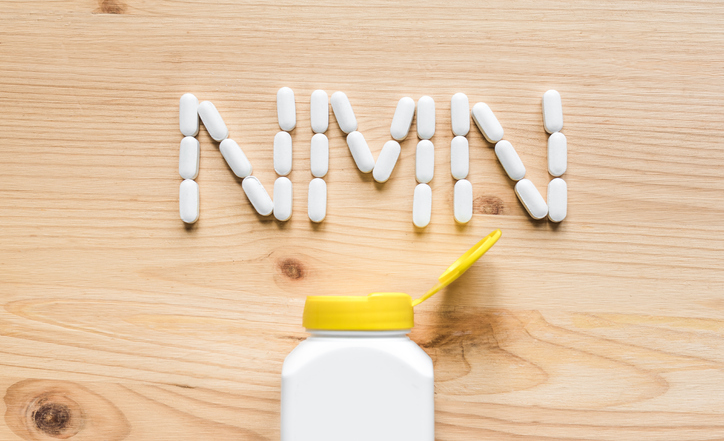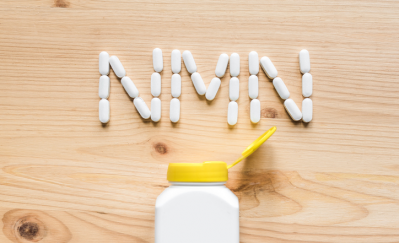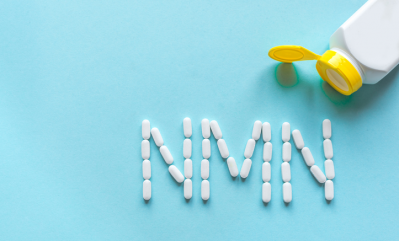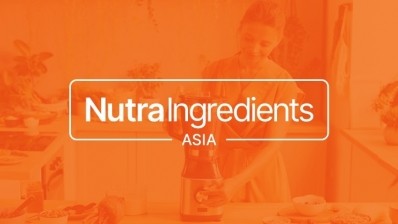‘Not so dire?’ China NMN supplier hopeful of US opportunities despite regulatory roadblock

A form of vitamin B3 and commonly marketed as an anti-ageing ingredient, NMN has been approved as an NDI in the US on a case-by-case basis and has been sold as a dietary supplement in the US market.
However, the USFDA changed its position on the ingredient last November while doing due diligence on a NDI notification. The regulator found out that NMN has been authorised for investigation as a new drug and thus turned down the company submitting the NDI notification for NMN.
Speaking to NutraIngredients-Asia, Effepharm, a Shanghai-based NMN ingredient supplier, believes that there is still hope for NMN’s use in dietary supplements, as the USFDA has yet to make an official announcement on its final stance on NMN.
Effepharm submitted an NDI notification to the US FDA on December 5 last year and was told by the regulator to furnish more documentation.
“The US FDA requested that we provided more documents to prove that our ingredient has already been used in dietary supplements or food manufactured or sold in the US. We have submitted these documents to the FDA and have not yet receive further response from the FDA,” said Dr Yu Jianjun, R&D director at Effepharm.
“We later learnt that other companies that have received NDI approval for their NMN ingredients or products had their approvals retracted.
“To be frank, we were quite taken aback when we first heard of the news. However, after analysing the situation with some of the industry associations and member companies, we felt that the situation might not be as dire as we thought.”
Dr. Yu explained that this was because there was not yet a conclusion to USFDA’s deliberation on the status of NMN.
“The FDA is only temporarily halting new notifications and needs to gather ample evidence. At the same time, we are contacting the companies and industry associations in collecting information that is useful in showing NMN’s role in dietary supplements, which we will then submit to the USFDA.”
Back in 2021, the US market made up 70 per cent of the company’s NMN business. Today, with the rise of other markets such as Japan, South Korea, and Europe, the proportion of business coming from the US has shrunk to around 40 per cent.
On a year-on-year basis, the company’s NMN sales had almost doubled between November / December 2021 and the same period last year.
“During November and December last year, our business was the most affected by the news from the USFDA.
“(However), as compared to the same period in 2021, we noticed that our overall sales volume had almost doubled, and so the effect (of USFDA’s announcement) on us was minor and only lasted for about one week, when many of our customers were uptight about the situation.”
He added that the USFDA was mainly responding to companies that have submitted an NDI notification, instead of announcing a blanket ban on the use of NMN as dietary supplements through an official announcement.
Based on past experience, he believes that it will still take about one to two years for the USFDA to reach a conclusion on the status of NMN in the US.
As of last December, four companies have submitted the 75-Day Premarket Notification for New Dietary Ingredients (NDI) with the USFDA.
They are Willy Chemicals INC, which had filed a notification for its NMN dietary supplement called Reju-Me, Willy Nutra, SyncoZymes (Shanghai), and Inner Mongolia Kingdomway Pharmaceutical Limited, according to the USFDA website.
NMN is a precursor of nicotinamide adenine dinucleotide (NAD+) – a redox cofactor that mediates many metabolic enzymes and regulates various biological processes, such as metabolism, DNA repair, and gene expression.
Other growth opportunities
On the other hand, Dr. Yu said that prior to NDI approval, there were companies that have received the GRAS (Generally Recognised As Safe) approval for NMN in the US.
This means that NMN can still be manufactured and sold as general food.
The company is also increasingly growing its business from markets outside of the US.
“For us, our US business is slowing shrinking in proportion as compared to the other markets. In the beginning, we were mostly reliant on the US market, because that’s where the NMN category first started,” Dr. Yu said.
In particular, the company has been focusing more on the South Korean, Japanese, and European markets.
In Japan, NMN has been permitted for use in food by the Ministry of Health, Labour, and Welfare (MHLW). A number of local Japanese firms, such as Mitsubishi Corporation Life Sciences and Oriental Yeast, have conducted human clinical on NMN supplements.
On top of oral supplements, there are also clinics providing NMN intravenous therapy in Japan.
In South Korea, Dr. Yu said Effepharm has been working with customers to register NMN cosmetics cosmetics with the authorities.
While South Korea and Japan presented more growth opportunities than other Asian markets at the moment, he believes that China would eventually overtake the two markets.
At present, NMN is not yet approved by China and so it cannot be produced and marketed as food within China, which has in turn limited the growth of the NMN category to the cross-border e-commerce market.
Nonetheless, the State Administration of Market Regulation (SAMR) has suggested to carry out a safety evaluation for NMN as a novel food or establish a food safety national standard for this ingredient.
Similar dilemma – NAC
The ingredient N-acetyl-L-cysteine (NAC) is facing a similar regulatory dilemma as NMN in the US, Dr. Yu pointed out.
However, unlike NMN, it was first approved as a new drug before it was marketed as a dietary supplement or as a food in the US.
As a result, the USFDA determined that NAC is excluded from the dietary supplement definition under the Federal Food, Drug, and Cosmetic Act (FD&C Act).
Petitions have been made to permit the use of NAC in supplements and the USFDA has not yet reached a final decision on the petition request, as of last August.
“…We are considering initiating rulemaking to provide by regulation that NAC is not excluded from the definition of dietary supplement.
“If, among other considerations, the FDA does not identify safety-related concerns as we continue our review of the available data and information, we are likely to propose a rule providing that NAC is not excluded from the definition of dietary supplement.
“While our full safety review of NAC remains ongoing, our initial review has not revealed safety concerns with respect to the use of this ingredient in or as a dietary supplement. In addition, NAC-containing products represented as dietary supplements have been sold in the United States for over 30 years and consumers continue to seek access to such products,” the USFDA said.
Innovation
Asked how else the company will navigate the NMN sector, Dr. Yu said that the company planned to develop a series of supplement ingredients that were part of the NAD+ metabolic processes.
“NMN is only a product of the NAD+ industry, the other related products include nicotinamide riboside (NR) and NMNH (Reduced Nicotinamide Mononucleotide NMNH). We have conducted market survey and initial product research.
“We have also conducted toxicology and clinical trials. Further down the road, we will receive more data to compare NMN with other products. We hope to develop a series of NAD+ related products.”
Asked how the company would differentiate between the different products, he said that the company would compare their bioavailability, which he said was different based on existing research.
The other area is to consider how each ingredient could be made for different purposes.
“For example, NMN is more stable under acidic condition. But the other product, NMNH, is more stable under alkali condition.”
These ingredients can also be combined together as part of a formula, Dr. Yu said.


















